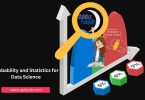The server-side programming language PHP, also known as Hypertext Preprocessor, is flexible and extensively used. It is crucial for web development. It combines smoothly with HTML, enabling programmers to create dynamic web pages and manage a variety of web-related tasks like form processing, database integration, and user authentication. The widespread use of PHP on the internet, which powers popular websites like Facebook and WordPress, is a salient feature. Additionally, it is open source, which means it is cost-free to use and has a thriving developer community that provides a wealth of tools, libraries, and frameworks. PHP’s versatility is shown in its capacity to work on a wide range of tasks, from straightforward websites to complex web apps. It excels at handling user input, connecting to databases without a hitch, and managing content management systems (CMS). Learning PHP provides access to a wide range of employment prospects in addition to teaching you a useful skill. PHP developers are actively sought after by many businesses to create and manage their online applications, making them in high demand on the employment market. The ease of learning PHP is a significant benefit for new users. It can be used by those with little programming knowledge because of its similar syntax to other C-style computer languages. For those beginning out in coding, it makes sense to start here. Advanced PHP books can help you advance as you continue your PHP learning journey. By providing real-world examples, best practices, and insights into more complex subjects like object-oriented programming (OOP) and MVC architecture, they delve further into PHP’s capabilities. You may create web apps that are more intricate, effective, and secure thanks to these resources. You can learn how to manage database interactions, work with well-known PHP frameworks, emphasize security, and enhance efficiency with the help of advanced PHP books. They lay the groundwork for developing into an expert PHP developer who can produce complex web solutions.
We cover these topics
Code Structure and Style
Object-Oriented Programming and Design Patterns
Effective Error Handling
Template Implementation for the Web
Standalone PHP Scripting
Unit Testing for Code Reliability
Development Environment Management
Designing Robust APIs
Enhancing External Performance
Data Caching Strategies
Optimizing Computational Efficiency
Database Interaction Techniques
User Authentication and Security
Effective Session Management
Extending PHP and Zend Engine Development








